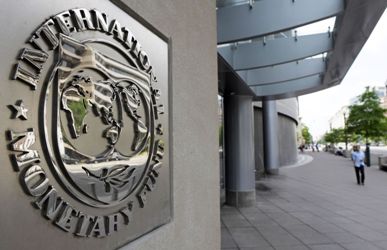IMF says agreement with Juba offers “window of opportunity” for Khartoum
July 17, 2013 (WASHINGTON) – The International Monetary Fund (IMF) today issued a statement expressing optimism that a recent deal between Khartoum and Juba on oil will help cushion the effects of a severe economic downturn that Sudan is experiencing.

The accord is expected to breathe new life into the beleaguered economies of the two countries which were heavily dependent on oil remittances to pay for imports of basic commodities.
Sudan says it expects to receive $2 billion a year in fees from exporting Juba’s oil.
“[T]he March 2013 agreement with South Sudan on oil and security matters is offering a window of opportunity for bold policy reforms to address the post-secession challenges and bring about a much-needed turnaround”, said the IMF following the return of a mission led by Edward Gemayel from a visit to Khartoum during July 2-16.
The IMF said Sudan’s three-year program to deal with effects of losing the oil-rich south led to mixed results.
“Despite an initial package of corrective measures adopted in June 2012, economic developments remains mixed. While inflation has shown recent signs of moderation, and fiscal performance in the first half of 2013 exceeded budget projections, further action is needed to safeguard macroeconomic stability and support the needed recovery.”
Following the independence of South Sudan in July 2011, Khartoum was forced to introduce a contractionary budget that saw the partial lifting of fuel and food subsidies which triggered rare but small demonstrations across the country.
Sudan also imposed restrictions on sale of foreign currency and imports to preserve the already low levels of Forex held by the central bank.
Later the government also moved to effectively devalue the currency which came under enormous pressures as a result of a big shortage in foreign currencies.
Last month the Sudanese finance minister said the results of the tripartite economic program has been modest given continued deterioration in several major economic indicators including budget deficit, high food prices, growing gap between official and black market exchange rates and the declining rates of economic growth.
The government is now planning to further cut fuel subsidies but a final decision has not been made yet given fear of its impact on living conditions for the population and the domino effect it will create on prices of almost all goods and services.
But the IMF urged Khartoum to exercise discipline in executing its economic plans despite painful effects.
“The expeditious implementation of corrective macroeconomic policies to raise non-oil revenue, streamlining expenditure while protecting the most vulnerable, unifying the exchange rates and markets, and enhancing the monetary policy framework, would help create the conditions for stronger medium-term growth and poverty alleviation”, the IMF stressed.
“Furthermore, the mission underscores the importance for the 2014 budget to continue the required fiscal consolidation path” it added.
The statement said that the IMF’s Executive Board will consider the report of the mission next September.
The World Economic Outlook (WEO) released by the IMF last April also showed Sudan’s economy shrinking by -4.4% last year compared to a previous estimate of -11.1%.
In 2013, Sudan is expected to achieve a 1.2% growth which is higher than the -0.6% projected by the IMF last year. Next year’s GDP is also forecasted to stand at 2.6% which is slightly better than the 2.1% predicted in the IMF last assessment of Sudan’s economy.
(ST)
